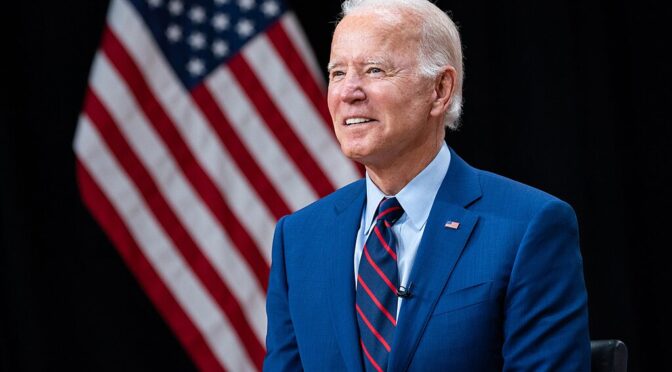by Nick Taylor
Joe Biden’s Stage 4 cancer diagnosis tells a clear story about what should have been done but wasn’t. The 82-year-old ex-president should have had a routine blood test to check his PSA — prostate specific antigen — for one of the high readings that suggests cancer is present. This is a routine lab test that returns results within hours.
Unbelievably, his office said he wasn’t screened for prostate cancer after 2014, when he was 71. This follows medical guidance that suggests men over 70 don’t need it, probably because many prostate cancers are slow-growing and something else will kill them first. But Biden was Vice President of the United States in 2014 and was elected President in 2020. In those circumstances, failing to be screened for prostate cancer is a scandal.
I know this first hand because my doctor Peter Zeale told me the test was necessary despite what the medical establishment says. My screening led to a prostate cancer diagnosis and treatment, and at 79 I’m alive to write this essay.
It’s hard to believe that standard medical advice would apply in Biden’s case, so that he had undiscovered cancer long enough that it metastasized from his prostate into his bones. Somebody wasn’t paying attention. Maybe it was Joe. Or his family. Or his doctors.
None of that matters now, though. What’s important now is to talk about so other men don’t make the same mistake. Biden, after all, first advocated for a “cancer moonshot” to improve research and treatment when he was VP under Barack Obama. His son Beau died in 2015 of an aggressive brain cancer. Biden wanted then, and as the 46th President, to reduce cancer deaths and improve survivors’ lives.
Here’s what’s important to know.
Prostate cancer strikes one in eight men across the world. It’s the cancer men have most. The medical world tells men between 45 and 69 that they should have their PSA regularly screened in blood tests. If you’re Black or have a family history of prostate cancer, as I do, you should start earlier, when you’re 40. It’s the American Urological Association that says you can forgo screening after 70. Why? Don’t we matter anymore?
Those of us who live and work longer owe it to ourselves and our families to ask our doctors for the test. For one thing, there are aggressive prostate cancers, too. Joe Biden’s is, the news tells us. Mine was, too.
I was 75 when my PSA ticked up to over 4.0 and a biopsy showed aggressive cancer. I was presented with three options — surgery, chemotherapy, and radiation. I chose surgery — a radical prostatectomy to remove my prostate. It had drawbacks but offered the best chance of longevity. That happened in 2022 and a second surgery removed a cancerous lymph node in 2023.
In April 2024 I started hormone therapy — an injection of the female hormone Lupron — to drive down my level of testosterone. That’s the male hormone that prostate cancer likes and seeks out. I started a seven-week course of radiation therapy that summer. That finished in August but the hormone shots continued. I’ll have eighteen months in all of Lupron, ending in the fall of 2025, to continue to starve the cancer of testosterone. My recent readings of testosterone and PSA are undetectable.
There’s a reluctance among men to own up to having prostate problems. That’s because the prostate, as troublesome as it can be, is a gland that gives a man his sexual identity. Without a prostate, we cannot “get it up.” Maybe that’s why Biden’s secretary of defense, Lloyd Austin, kept it a secret that he was in the hospital for a prostatectomy during the year-end holidays in 2023. Chicago medical writer Howard Wolinsky called him out for hushing up his prostate cancer as if it were something to be ashamed of.
England’s King Charles had less of a problem talking about his enlarged prostate and cancer diagnosis. He talked to his people the way a leader should, to remind them of the need to be tested and get treated.
It remains inexplicable that Joe Biden didn’t get screened and treated earlier. The news tells us that his cancer, though it’s metastasized, should respond to hormone treatments.
So it’s not too late for him to use this moment to put a new push in for his cancer moonshot. He can say, as I do, that prostate cancer is nothing to be ashamed of, it strikes a lot of men, and having it provides a teaching moment. It can save and prolong lives to reach out with the advice that it can happen to you, so know your vulnerabilities, get tested, and get treated.








Good advice, Nick. BTW, I wonder if President Trump is having his PSA level regularly checked.